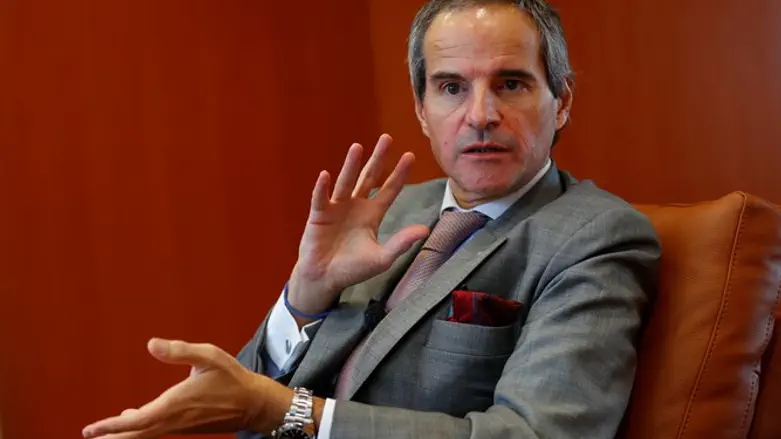
The dates on which Iran has agreed to grant the UN nuclear watchdog access to two suspected former secret sites are “very, very soon,” the agency’s chief Rafael Grossi told reporters as he returned from Tehran on Wednesday, according to Reuters.
Grossi, who heads the International Atomic Energy Agency (IAEA), issued a joint statement with the head of Iran’s nuclear agency earlier on Wednesday saying the two sides had struck a deal to end a months-long standoff over access to the sites, and that dates for inspections had been agreed. Grossi declined to say what those dates are.
"Iran is voluntarily providing the IAEA with access to the two locations specified by the IAEA," Grossi and Iran's nuclear agency chief, Ali Akbar Salehi, said in the joint statement, according to Reuters.
Grossi’s visit to Tehran, which was announced on Saturday, follows a recently released IAEA report in which the agency expressed "serious concern" that Iran has been blocking inspections at two sites where past nuclear activity may have occurred.
The agency has for months been pressing Tehran for information about the kind of activities being carried out at an undeclared site where the uranium particles were found.
While the IAEA has not identified the site in question, it is believed to be the Turquzabad facility which was identified by Prime Minister Binyamin Netanyahu during his address before the UN General Assembly in 2018 as a "secret atomic warehouse."
Iran has gradually scaled back its compliance with the 2015 deal in response to US President Donald Trump’s withdrawal from the agreement in May of 2018.
Wednesday's statement said that, at least for now, the IAEA does not want access to more undeclared sites.
It is still, however, seeking answers on the origin and whereabouts of a uranium metal disc that may have been at a third site that it sees no point in going to because of "extensive sanitization and levelling" there in 2003 and 2004.
"In this present context, based on analysis of available information to the IAEA, the IAEA does not have any further questions to Iran and further requests for access to locations other than those declared by Tehran," the statement said.
